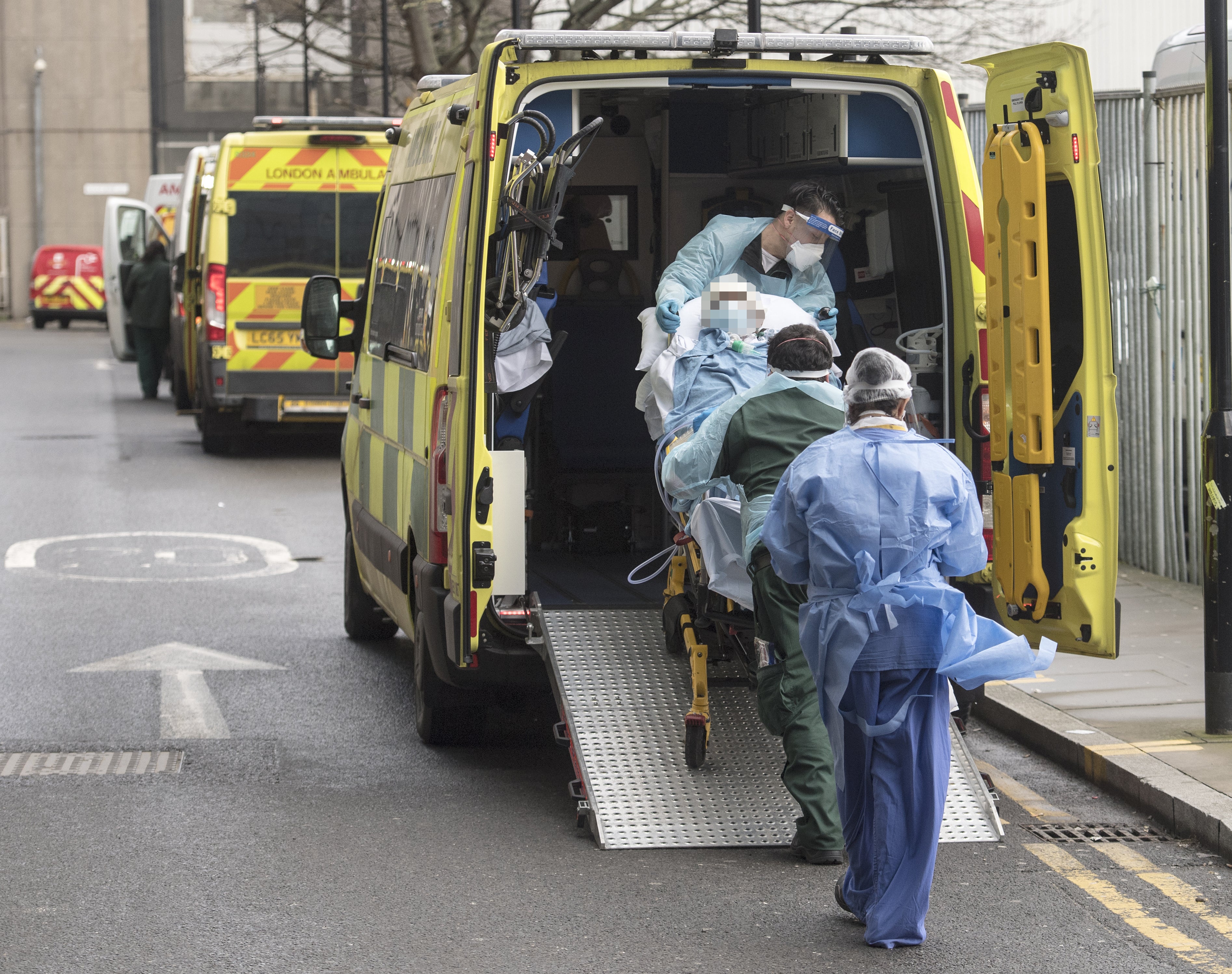UK records highest daily death toll since early March
Latest figures bring country’s official death toll to almost 140,000

Your support helps us to tell the story
From reproductive rights to climate change to Big Tech, The Independent is on the ground when the story is developing. Whether it's investigating the financials of Elon Musk's pro-Trump PAC or producing our latest documentary, 'The A Word', which shines a light on the American women fighting for reproductive rights, we know how important it is to parse out the facts from the messaging.
At such a critical moment in US history, we need reporters on the ground. Your donation allows us to keep sending journalists to speak to both sides of the story.
The Independent is trusted by Americans across the entire political spectrum. And unlike many other quality news outlets, we choose not to lock Americans out of our reporting and analysis with paywalls. We believe quality journalism should be available to everyone, paid for by those who can afford it.
Your support makes all the difference.The UK has recorded its highest number of daily Covid-19 deaths since early March, with a further 263 fatalities announced on Tuesday.
This figure, which brings the country’s total death toll to 139,834, is larger than on any day since 3 March, when 487 people lost their lives within 28 days of testing positive for the virus.
Separate data from the Office for National Statistics (ONS) shows that Covid-19 has been listed on 164,000 UK death certificates since the start of the pandemic.
The government said on Tuesday that 40,954 coronavirus infections had been detected in laboratories.
This is slightly lower than the 52,009 daily cases reported last Thursday, the largest number identified over a 24-hour period since mid-July.
Amid the recent spike in infection rates, health leaders have urged the government to adopt its “Plan B”, which would see the reintroduction of mandatory face masks in certain settings and a return to home working.
However, ministers have resisted the move, which leaked Treasury documents estimate would cost the British economy between £11bn and £18bn in five months.
The unwillingness to adopt these restrictions comes at a time when hospitalisations from the disease are higher than at any point since early March.
As of Monday, 8,693 Covid-19 patients were being treated in UK hospitals, more than a 10 per cent jump from the previous week.
Although this is far lower than the peak of 39,254 patients who were in hospitals in mid-January, it will raise fears that the NHS will become even more stretched this winter.
The prime minister’s spokesperson reiterated on Tuesday that Plan B would only be implemented when “pressure on the NHS is unsustainable”. Were this to happen, parts of the economy would still remain open, they added.
Last week, Dr Chaand Nagpaul, the chair of the British Medical Association (BMA), said the government’s approach was “wilfully negligent”.
“By the health secretary’s own admission we could soon see 100,000 cases a day and we now have the same number of weekly Covid deaths as we had during March, when the country was in lockdown,” he said.
“It is therefore incredibly concerning that he is not willing to take immediate action to save lives and to protect the NHS,” Dr Nagpaul added.
The BMA chair said the current rate of infections and deaths was “unacceptable”.
Join our commenting forum
Join thought-provoking conversations, follow other Independent readers and see their replies
Comments